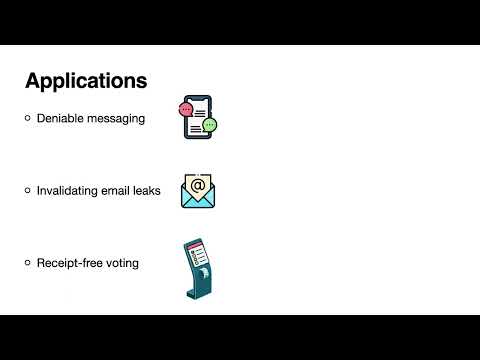CryptoDB
Short-lived zero-knowledge proofs and signatures
| Authors: |
|
|---|---|
| Download: | |
| Presentation: | Slides |
| Conference: | ASIACRYPT 2022 |
| Abstract: | We introduce the short-lived proof, a non-interactive proof of knowledge with a novel feature: after a specified period of time, the proof is no longer convincing. This time-delayed loss of soundness happens "naturally" without further involvement from the prover or any third party. We propose definitions for short-lived proofs as well as the special case of short-lived signatures. We show several practical constructions built using verifiable delay functions (VDFs). The key idea in our approach is to allow any party to forge any proof by executing a large sequential computation. Some constructions achieve a stronger property called reusable forgeability in which one sequential computation allows forging an arbitrary number of proofs of different statements. We also introduces two novel types of VDFs, re-randomizable VDFs and zero-knowledge VDFs, which may be of independent interest. Our constructions for short-lived Sigma-protocols and signatures are practically efficient for provers and verifiers, adding a few hundred bytes of overhead and tens to hundreds of milliseconds of proving/verification time. |
Video from ASIACRYPT 2022
BibTeX
@inproceedings{asiacrypt-2022-32602,
title={Short-lived zero-knowledge proofs and signatures},
publisher={Springer-Verlag},
author={Arasu Arun and Joseph Bonneau and Jeremy Clark},
year=2022
}

